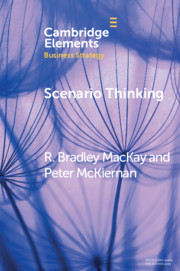Refine search
Actions for selected content:
1 results

Scenario Thinking
- A Historical Evolution of Strategic Foresight
-
- Published online:
- 21 September 2018
- Print publication:
- 04 October 2018
-
- Element
- Export citation
